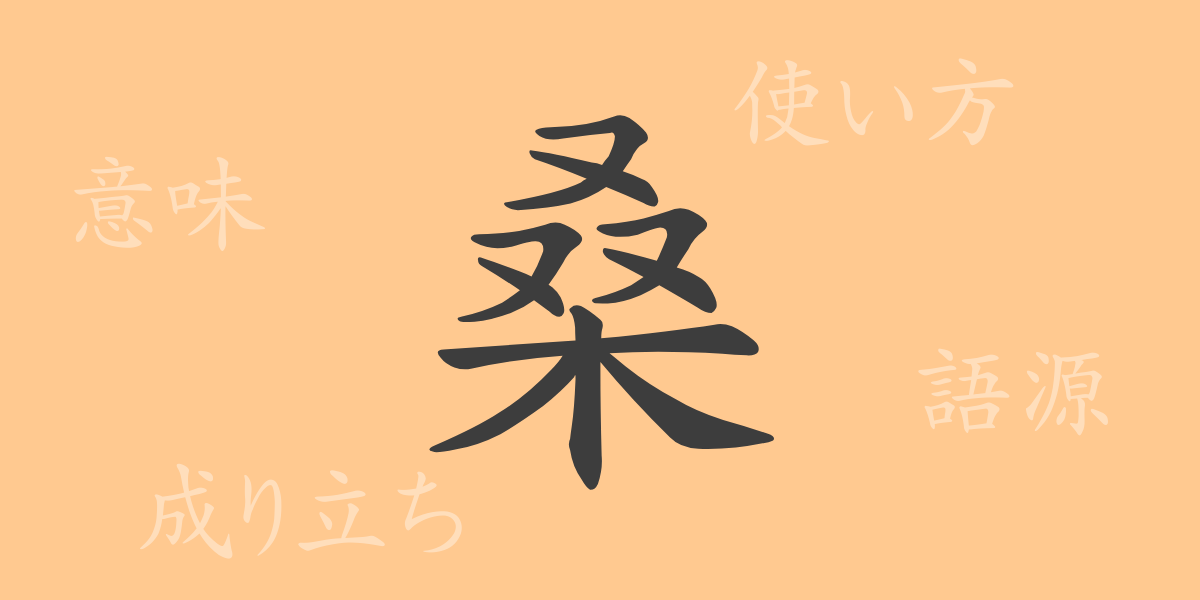The richness of Japanese culture and language is embodied in its Kanji characters, each of which carries deep meanings and history. “桑” (くわ – ソウ), a common Kanji, is deeply ingrained in nature, history, and everyday life. This article explores “桑” (くわ – ソウ) from its origins to its meanings, applications, and even its use in phrases and proverbs, delving into its allure.
Origins of 桑 (くわ – ソウ)
The origin of the Kanji “桑” (くわ – ソウ) is ancient, traceable to old Chinese texts. The character combines the radical for “wood” (木) with “庸,” reflecting its association with human activity. Originally representing the figure of a person at work, “桑” (くわ – ソウ) symbolizes a plant deeply integrated into human life, notably for feeding silkworms and being crucial in silk production.
Meaning and Usage of 桑 (くわ – ソウ)
While primarily referring to the mulberry tree or fruit, “桑” (くわ – ソウ) also extends metaphorically to products derived from it or to expressions of change, as in “桑田” (そうでん), denoting transformation over time, or “桑原” (そうげん), meaning a thick grove of mulberry trees.
Readings, Stroke Count, and Radical of 桑 (くわ – ソウ)
The Kanji “桑” (くわ – ソウ) offers a variety of readings and structural insights:
- Readings: On’yomi “ソウ” (ソウ), Kun’yomi “くわ” (くわ)
- Stroke Count: A total of 10 strokes
- Radical: Wood (木部)
Phrases and Proverbs Using 桑 (くわ – ソウ)
“桑” (くわ – ソウ) features in many idioms and proverbs, reflecting ancient Japanese wisdom and cultural values. For example, “桑田碧海” (そうでんへきかい) illustrates great transformation, and “桑原を漂う” (そうばらをただよう) describes wandering without settling, both emblematic of nature’s and life’s unpredictability.
Summary on 桑 (くわ – ソウ)
The Kanji “桑” (くわ – ソウ) transcends its literal meaning as a plant, embodying rich historical and cultural narratives. Understanding its background enriches our appreciation of Japanese language depth, revealing the intertwined stories of nature’s gifts and human livelihood as represented in this enduring Kanji.

























